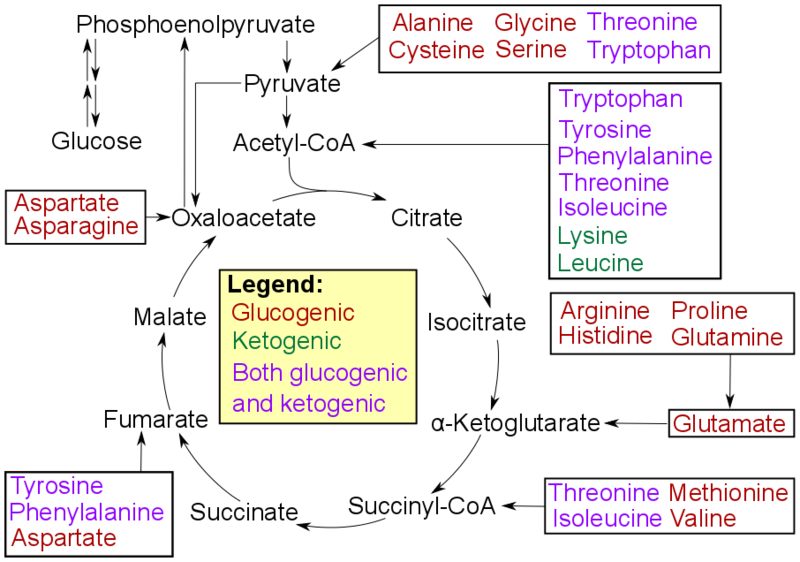Gondwanaland
Senior Member
- Messages
- 5,094

Welcome to Phoenix Rising!
Created in 2008, Phoenix Rising is the largest and oldest forum dedicated to furthering the understanding of, and finding treatments for, complex chronic illnesses such as chronic fatigue syndrome (ME/CFS), fibromyalgia, long COVID, postural orthostatic tachycardia syndrome (POTS), mast cell activation syndrome (MCAS), and allied diseases.
To become a member, simply click the Register button at the top right.

I noticed that some digestive enzymes might be neededFor instance, if one has a problem with fatty acid metabolism, would taking biotin, B2, or B3 help?
It looks like this diagram has been updated with a few changes from the old one. This is a very helpful diagram indeed, but I still am not sure about how these vitamins/cofactors help with carb/fat/protein metabolism. For instance, if one has a problem with fatty acid metabolism, would taking biotin, B2, or B3 help? My initial guess was a definite yes, but after a few years of trial and error, now my opinion has changed to a big no, especially at very high doses. If the person's system is not working properly to get rid of oxidative species that form during energy metabolism process, the extra vitamins and cofactors dumped into the body would only lead to more stress on the body.
What are you getting at exactly? It would be interesting to hear your expanded views.I couldn't agree more. I am curious - do posters on this subforum ever ask themselves why people with ME/CFS have all these nutritional deficiencies? Energy production inhibition in this disease looks pretty regulated/purposeful to me. And the sicker one gets, the more obvious the damage becomes from even small doses of various B vitamins.
yesEnergy production inhibition in this disease looks pretty regulated/purposeful to me.
That's because this chart is only the Kreb's (carb) cycle. It doesn't address fat and protein metabolism, even as much as the other chart we were look at did, and that was only a head nod.This is a very helpful diagram indeed, but I still am not sure about how these vitamins/cofactors help with carb/fat/protein metabolism.
What are you getting at exactly? It would be interesting to hear your expanded views.
Also, are you saying that B Vitamins actually cause damage in sicker individuals?
I never found one like you described. I think we would have to draw one ourselves. I have re-labeled this one to make it more intuitive:Do you have a more detailed breakdown of the Krebs/Citric Acid Cycle that would show all of the metabolites like citric acid, as well as the detailed vitamins, minerals, and other metabolites (e.g., NAD+) required at each conversion step? I like the way the diagram you posted lays out precursors for all of the important steps leading into the Krebs.
B5 is key for fat digestion. B5 can be wasted in urine if there is ketonuria, as can B1 as well.For instance, if one has a problem with fatty acid metabolism, would taking biotin, B2, or B3 help?